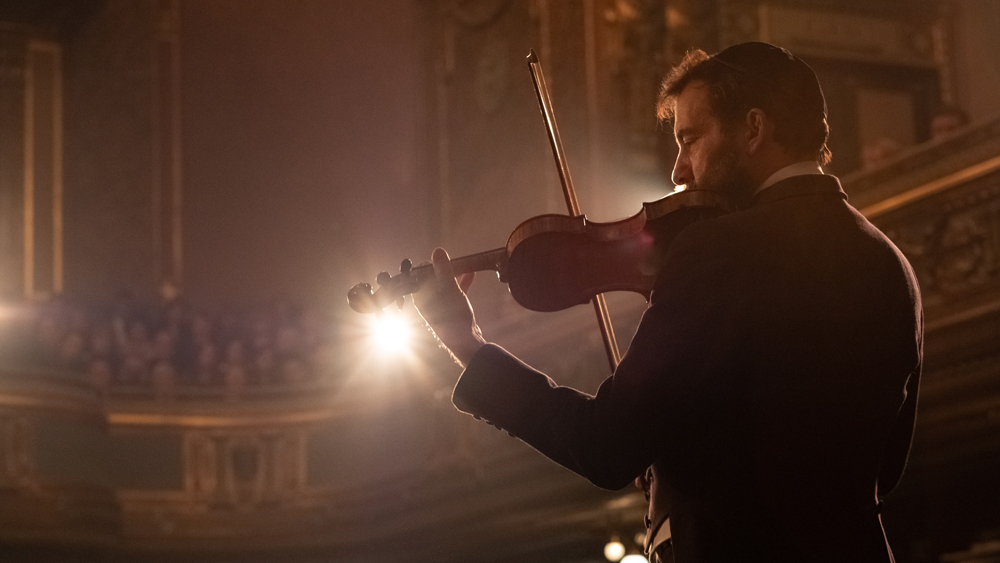The Song of Names
The Song of Names, 2019, 1 ¾ stars
Off-key
Song is out of tune
Exclusive to MeierMovies, January 17, 2020
It’s often overwhelmingly apparent that a particular film is based on a novel, but only when that film is poorly made. If a novel-based movie is well crafted, on the other hand, it seamlessly transitions from its original format to the screen, sans clunkiness, pedestrian exposition and structural problems, making it difficult to guess the source material. Unfortunately, The Song of Names is not one of those films.
Based on the 2001 book by British author Norman Lebrecht, The Song of Names relays the nearly 50-year relationship – or lack thereof – between Martin and Dovidl. They meet as boys in London just prior to the outbreak of World War II when Martin’s parents, upon the urging of Dovidl’s Jewish family, adopt Dovidl, saving him from the pending Holocaust.
Initially resentful of the arrangement, the boys soon form a bond, and Martin comes to respect the talents of Dovidl, who is a violin virtuoso. But when Dovidl disappears just before his concert-hall debut, Martin and his family are devastated. And Martin’s quest to discover Dovidl’s fate becomes a lifelong obsession.
“Why are you wasting your time on him?” Martin’s wife asks him after an unlikely clue 35 years after Dovidl’s disappearance leads Martin to suspect Dovidl might be in either Poland or New York City.
“I might be all he’s got,” Martin replies.
Martin is passionate about finding his adopted brother, but that passion never translates to the screen, as the actors have little chemistry and the time-jumping structure robs the story of its emotional punch. Further, the performances range from predictable to stiff to embarrassingly forced to just plain boring. Indeed, much of the movie seems phoned it, as if it’s relying on the premise alone to produce suspense. Penned by Jeffrey Caine (The Constant Gardener) and directed by François Girard (The Red Violin), The Song of Names never establishes a strong enough connection between Martin and Dovidl, and never engages its audience in Martin’s search for Dovidl. It’s all simply happening before our eyes, complete with contrived clues, predictable outcomes and choppy editing.
Part of the problem – spoiler alert! – is we know beforehand that the film stars Tim Roth and Clive Owen. So from the first few scenes, when we’re introduced to Roth as Martin, we deduce that Martin will indeed find Dovidl and that he will be played by Owen. The rest of the plot then becomes a paint-by-numbers activity. The lone intriguing element, which is only briefly explored near the end, is the clash between individualism and faith, between devotion to family and devotion to God. But if, like me, you’re a devotee of Jewish film festivals, you’ve seen these issues explored with greater depth, intrigue and maturity many times before.
The title is derived from the Jewish practice of memorizing the names of Holocaust victims by committing them to song, and the film should be commended for its respect for music. (Luke Doyle, who plays Dovidl as a young boy, is himself a skilled violin player.) But the scene in which the names of the men, women and children murdered at Treblinka are sung aloud, in prayer, comes and goes without a lasting emotional impact. Still, perhaps the film can enjoy a more permanent legacy by reminding us of this important Jewish musical tradition.
© 2020 MeierMovies, LLC
